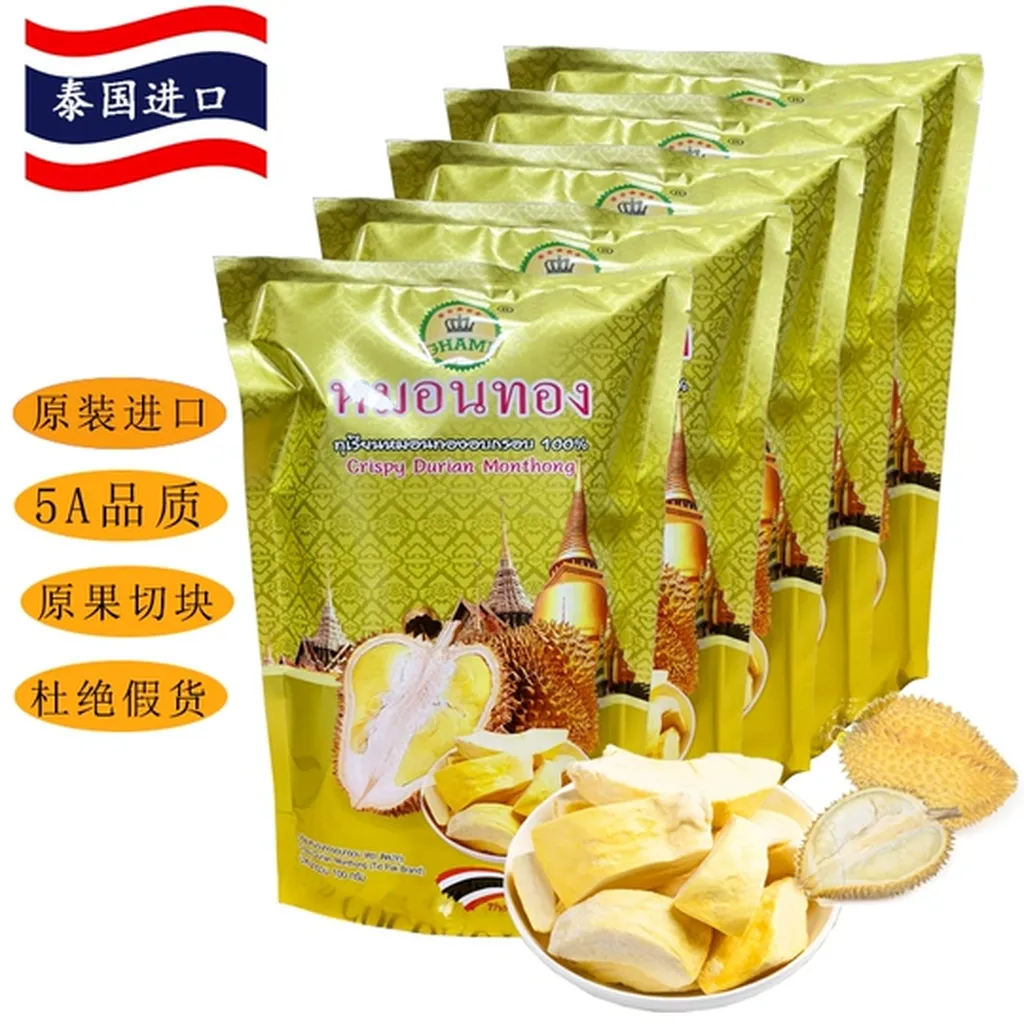In the heart of Thailand, researchers are turning agricultural waste into a valuable resource, potentially revolutionizing the food industry. Wattinee Katekhong, a researcher from the Department of Food Science and Technology at Kasetsart University, has been leading a study that transforms durian rinds—typically discarded as waste—into a functional ingredient with promising applications in frozen foods and beyond.
Durian, known as the “king of fruits,” is widely consumed in Southeast Asia, but its thick rind is usually discarded, posing environmental challenges. Katekhong’s research, published in *Food Chemistry Advances* (which translates to *Advances in Food Chemistry*), explores the extraction of pectin from durian rinds at different pH levels and its potential as a cryoprotective agent, antioxidant, and anti-inflammatory agent.
Pectin, a polysaccharide found in plant cell walls, is commonly used as a gelling agent in food products. However, the pectin extracted from durian rinds at pH 2 showed remarkable properties. “We found that pectin extracted at pH 2 significantly reduced ice content in frozen foods compared to commercial pectin and sucrose,” Katekhong explained. This reduction in ice content is crucial for maintaining the quality and texture of frozen foods, as large ice crystals can damage cell structures and lead to undesirable changes in texture.
The study also revealed that durian rind pectin exhibited strong antioxidant and anti-inflammatory properties. “The pectin extracted at pH 2 showed the highest antioxidant activity, and both the pH 2-extracted pectin and commercial pectin demonstrated potential anti-inflammatory effects without detectable cytotoxicity,” Katekhong noted. These findings suggest that durian rind pectin could be a valuable ingredient in functional foods designed to promote health and well-being.
The commercial implications of this research are substantial. The food industry is continually seeking sustainable and functional ingredients to meet consumer demand for healthier and more environmentally friendly products. Durian rind pectin offers a promising solution, as it not only reduces waste but also enhances the quality and nutritional value of food products.
Moreover, the potential applications of durian rind pectin extend beyond the food industry. Its cryoprotective properties could be beneficial in the biopharmaceutical and cosmetic industries, where maintaining the stability of biological materials is crucial. The antioxidant and anti-inflammatory properties could also be leveraged in the development of novel health supplements and therapeutic agents.
As the world grapples with the challenges of food waste and sustainability, research like Katekhong’s offers a beacon of hope. By converting agricultural by-products into valuable resources, we can create a more circular and sustainable economy. The future of food lies in innovation and sustainability, and durian rind pectin is a testament to that vision.
“This research not only highlights the potential of durian rind pectin but also underscores the importance of exploring sustainable and functional ingredients from agricultural waste,” Katekhong concluded. As the food industry continues to evolve, the integration of such innovative ingredients will play a pivotal role in shaping a healthier and more sustainable future.

